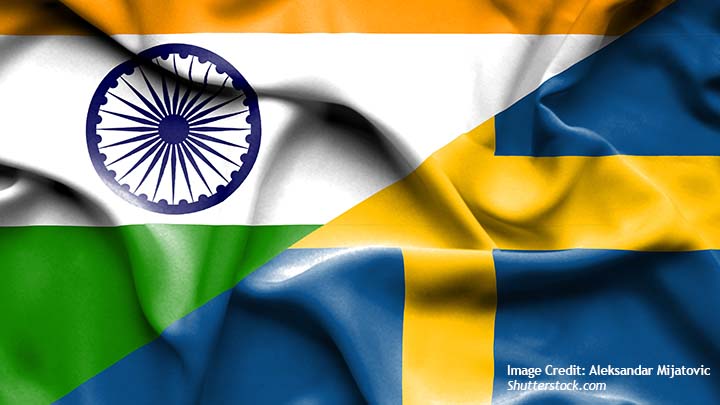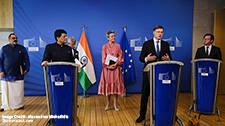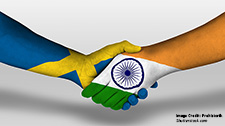India-Sweden Strategic Compass, Vol. 2, No. 5

Jagannath P. Panda, Erika Rutonen and Filip Borges Månsson
India-Sweden ties have continued to prosper this year as the two states celebrated 75 years of the establishment of diplomatic relations with increased interactions and visits by high-level officials from both sides. The Indian External Affairs Minister S. Jaishankar’s visit to Sweden earlier this year set the ball rolling for elevated discussions, including in AI, digital transformation, climate action, accelerated investments, access to business opportunities, and Indo-Pacific affairs. For Sweden, the visits by State Secretary for Foreign Trade Håkan Jevrell twice in a year highlighted the growing trajectory of India’s relations with Europe in general (as exemplified by increased interactions with Nordic states, as well as PM Modi’s
successful visits to France and Greece earlier this year), and Sweden in particular.
In this regard, India’s pivotal G20 presidency has been a huge factor; that this term coincided with Sweden’s six-month presidency of the EU Council was the icing on the cake. Notably, the G20 summit’s theme “Vasudhaiva Kutumbakam,” a Sanskrit phrase meaning “the world is one family,” epitomized the stress on sorely lacking international cooperation in this era of war and abiding conflicts. Therefore, in keeping with the need of the times, the agenda for this year was rightly international peace, digital transition, climate, sustainable growth, and developmental finance.
Going forward, Sweden and India collaborating on these global challenges, as well as fostering international cooperation, including with the Nordic, Baltic, and the EU member-states, for a rules-based Indo-Pacific order would provide momentum to their individual efforts in this direction.
Related Publications
-
Trade, Connectivity and Supply Chains in EU-India Relations
In the decade and a half since 2007 when the EU and India first started their FTA negotiations, the world economic order has undergone a sea change. During that period, […]
-
India-Sweden Strategic Compass, Vol.3, No.1, January-February 2024
How are India and Sweden positioning themselves in the year 2024? The year 2024 is historic in terms of elections being held throughout the world. About half of the world’s […]
-
ISDP Annual Report 2023
ISDP’s Annual Report for the year 2023. We look back on 2023, a year in which tensions and conflicts captured the strategic space in ISDP’s focus areas, making headlines around […]
-
Decoding Japan’s Political Trajectory in 2024
As 2024 opens, Japan’s politics, particularly the fortunes of the ruling Liberal Democratic Party (LDP) led by Prime Minister Fumio Kishida, is witnessing an accelerated downward spiral. A week after […]
-
Abandoning Neutrality, Absorbing Multipolarity: India and Sweden by 2047
Pragmatism and polarised positioning have become the new normal in foreign policy decision making – and Sweden and India are no exception. Sweden moved away from and perhaps permanently abandoned […]



